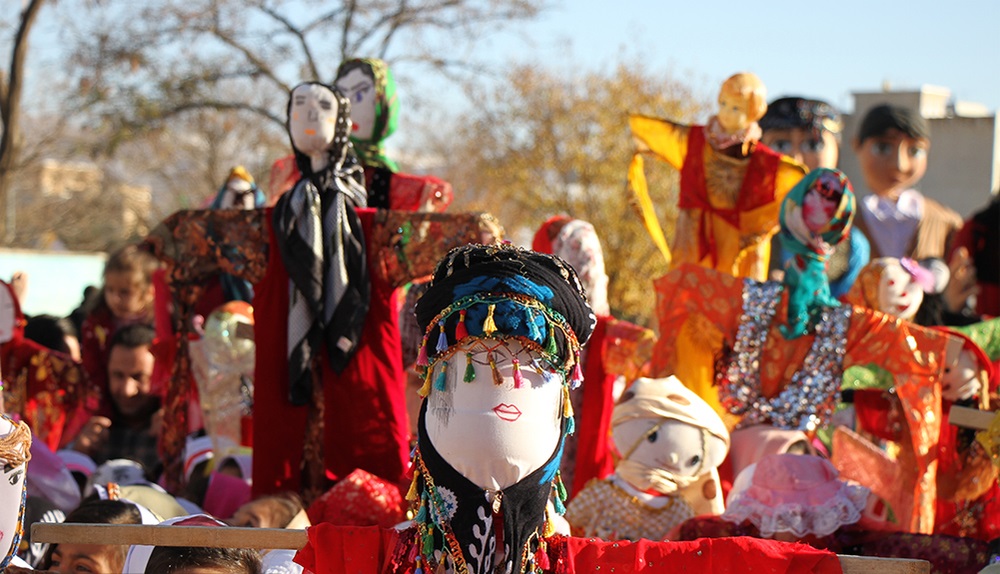Musical traditions and rituals serve as sources of comfort and help us cope with hardships. In contemporary society, there appears to be a noticeable absence of meaningful group activities or rituals to create a sense of connection among younger generations. By re-evaluating ancient rituals and revisiting musical traditions, educators nurture children’s sense of community and belonging. Performative rituals have the power to bring people together and create tangible and substantial connections between community members. Developing educational workshops based on rituals is a big first step toward reimagining cultural traditions and finding innovative means to of adapting them to modern contexts.
For example, rain-seeking rituals are widespread across various cultures, each exhibiting unique forms and practices. However, puppet making, chanting, and dancing remain the key parts of these rain prayers. Educators can leverage arts and indigenous knowledge to inspire children of all ages, raising awareness about issues such as water scarcity and crisis. One notable tradition is Bouke-varaneh, practiced among the Kurdish community of Iran, Turkey, and Iraq. In Bouke-varaneh ceremony, the community members create a doll representing the goddess of fertility and rain using a wooden spoon. Bouke-varaneh in Kurdish means rain bride. Children parade the “rain bride” through the village, while singing and chanting. Children ask for rain, as they express their sentiments regarding life’s challenges. Afterward, participants gather household utensils, cook and share meals together, symbolizing communal solidarity. The wooden spoon used in crafting the doll is only returned to its owner if rain occurs. Through such rituals, children develop an appreciation for natural resources, and understand the importance of taking good care of their planet earth.

